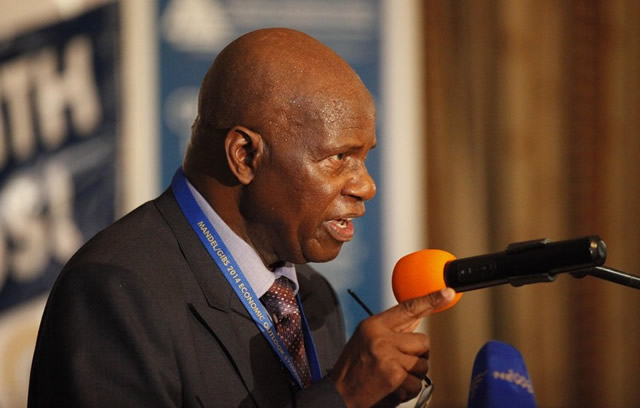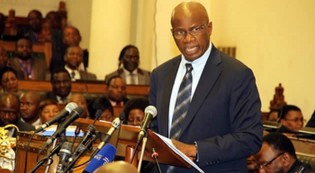Govt pay rise April, says Chinamasa

Felex Share Herald Reporter
Civil servants will have to wait at least until April before they start receiving their salary increments as cash-flow challenges have seen Government failing to effect agreed adjustments this month. This emerged from a meeting held by civil service union representatives, Finance Minister Patrick Chinamasa and Public Service, Labour and Social Welfare Minister Nicholas Goche on Tuesday night.
Government and its workers last month agreed on a deal that should see the least-paid employee getting three-quarters of the poverty datum line, which they settled at US$505.
This will see the civil service wage bill for the nearly 230 000 workers increasing by US$13 million to US$155 million per month.
The new salary structure will result in the lowest-paid civil servant in Grade B1 getting US$375, up from US$297.
Another review is expected mid-year, while the implementation of non-monetary and indigenisation benefits will be discussed at the end of this month.
Minister Goche yesterday referred questions to Minister Chinamasa, whose phone went unanswered.
“I think the Minister of Finance is the best person to talk to for explanation, but there were proposals that were made and there will be another meeting tomorrow (today),” he said.
Zimbabwe Teachers Association chief executive Mr Sifiso Ndlovu said Minister Chinamasa openly told them that it would be impossible for Government to effect any increments immediately.
“He (Minister Chinamasa) was baring his soul that he has no resources at the moment to pay the salaries.
“He said everyone would have received his money backdated to January by April. He said budget overruns from last year were putting pressure on the fiscus and he was trying to work some solutions that do not result in retrenchments or failure to pay current salaries.”
Mr Ndlovu said the development eroded the confidence the civil servants had in Government over the salary settlement.
“This is a serious disappointment and for him (Minister Chinamasa) to come on the eleventh hour, failing to consult us will bring despondency in the industry.
“Our confidence has been destroyed, as much as we understood some of the points he raised. He said during the first quarter of the year there are always cash flow problems.”
College Lecturers Association of Zimbabwe president Mr David Dzatsunga said while Minister Chinamasa had pleaded with them to be patient, they would map a way forward today.
“This is a delicate issue,” he said.
“We have put proposals that we have a certain sector being paid next month and the rest of the education sector getting their increments in April.
“Minister Chinamasa said technocrats from his ministry and the Civil Service Commission would work on the proposal and see if it is feasible. After that we agreed they should come up with a co-owned statement for us to be able to explain to our membership to avoid chaos.”
The new adjustments were effected on the basic salary only and transport (US$66) and housing allowances (US$91) remained unchanged.
Those in Grade D1 (such as teachers straight out of college) will get US$500 up from US$446, while those in EI such as deputy directors would get US$623.
Workers were demanding US$543 as the minimum pay and 30 percent of basic salary as rural allowance, but his remained unchanged at five percent.
Under the deal, Government also agreed to mobilise an additional US$3 million every month for the decompression of salary grades, a move that would see the workers being paid according to seniority, qualifications and experience.









Comments